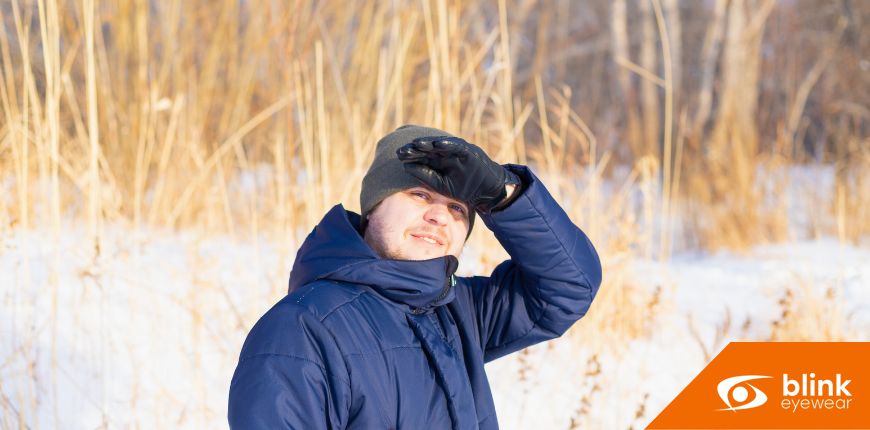
During winter, the cold weather and heating systems can lead to dry, irritated eyes. It's important to stay hydrated and use a humidifier to maintain indoor humidity. Protective eyewear, such as sunglasses with 100% UVA and UVB protection, is essential to shield eyes from harsh winds and UV rays. Diet plays a crucial role in eye health; foods rich in omega-3s, Vitamin E, and antioxidants, along with Vitamin D supplementation, are beneficial. Regular blinking while using digital devices helps prevent dryness. If wearing a mask, ensure it fits well to avoid directing warm air towards the eyes. For persistent discomfort, seek advice from an eye care professional for tailored treatment.
As the winter season rolls in, bringing with it the chilly winds and the beautiful blanket of snow, it's essential to remember that this picturesque season can also pose some challenges for our eyes. The cold weather, combined with harsh winds and indoor heating, can lead to eye discomfort and potential vision problems. However, with a few mindful practices, you can ensure that your eyes remain healthy and comfortable throughout the winter months. In this blog, we'll explore some vital tips to protect your vision during these colder times.
Stay Hydrated
One of the most understated yet crucial aspects of eye care in winter is staying hydrated. The cold weather often leads us to underestimate the amount of fluid our body needs, indirectly affecting the moisture level in our eyes. Dry, itchy, or red eyes are common symptoms of dehydration. To counteract this, ensure you drink plenty of water throughout the day. Herbal teas can also be a comforting way to stay hydrated. Hydration is not just about what you drink; it's also about the air around you. Consider using a humidifier in your home to maintain a healthy level of humidity, which can significantly benefit your eyes.
Wear Protective Eyewear
When stepping out into the cold, windy weather, wearing protective eyewear can be a game-changer for your eye health. The brisk winds can quickly dry out your eyes, leading to irritation. Sunglasses aren't just for summer; they play a vital role in winter by protecting your eyes from UV rays, which are just as harmful in winter, especially with the snow reflecting additional light. Opt for sunglasses or goggles that block 100% of UVA and UVB rays. If you enjoy winter sports like skiing or snowboarding, wearing goggles is essential to protect your eyes from both UV rays and potential injuries.
Manage Indoor Heat Sensibly
As much as we love cozying up in a well-heated room, it's essential to manage indoor heat sensibly. Central heating systems can reduce the humidity in the air, leading to a dry indoor environment. This dryness can affect the moisture in your eyes, causing discomfort. To mitigate this, try to maintain a moderate temperature in your living spaces. If you use heaters, consider placing a bowl of water nearby to add some moisture to the air. Also, take regular breaks from staring at screens, as prolonged exposure can exacerbate eye dryness.
Nutrition and Eye Health
Your diet plays a significant role in maintaining eye health, especially during winter. Foods rich in omega-3 fatty acids, Vitamin E, and antioxidants can help maintain eye moisture and overall health. Incorporate fish, nuts, and leafy green vegetables into your diet. Additionally, consider supplements if your diet lacks these nutrients. Winter is also a time when people get less natural Vitamin D due to reduced sunlight exposure. Vitamin D is crucial for overall health, including eye health, so consider discussing vitamin D supplementation with your healthcare provider.
Taking care of your eyes during the winter months is crucial for maintaining your overall vision health. By staying hydrated, wearing protective eyewear, managing indoor heat wisely, and paying attention to your diet, you can effectively protect your eyes from the harsh conditions of winter. Remember, your eyes are as vulnerable to winter conditions as the rest of your body, so give them the attention and care they deserve. Embrace these practices not just as part of your winter routine but as steps towards a healthier lifestyle that benefits your vision year-round. Stay warm, stay hydrated, and let your eyes shine bright this winter season!
Written on behalf of Blink Eyewear.